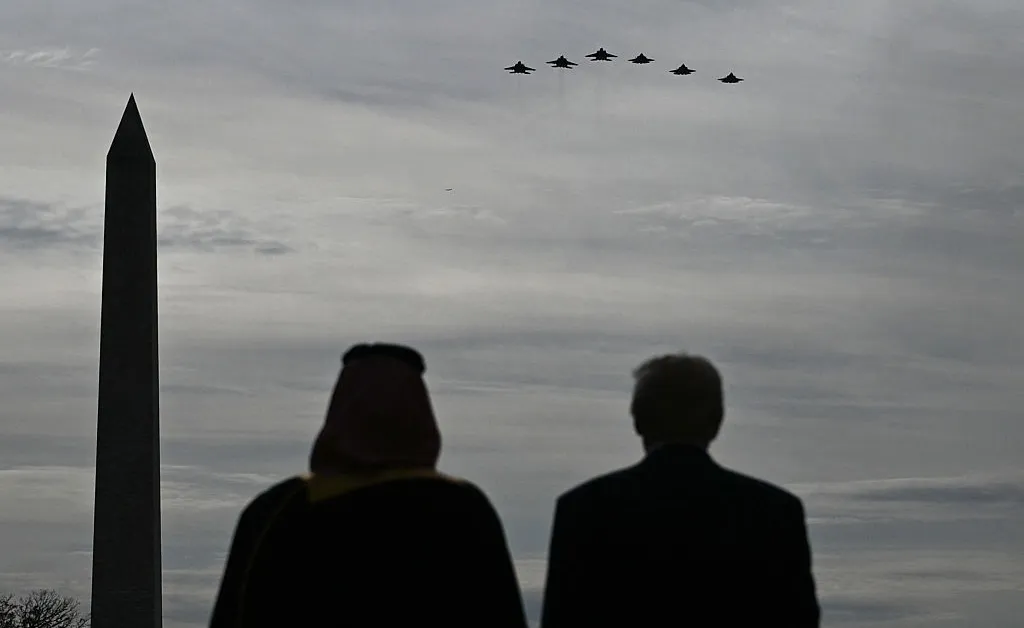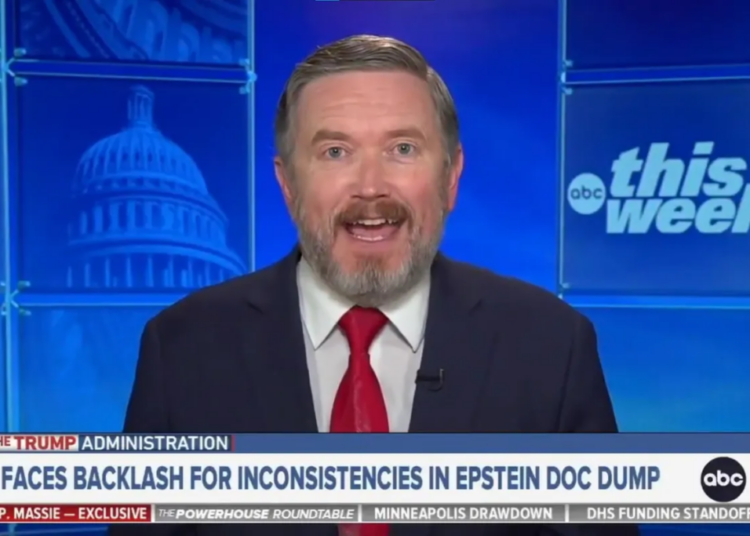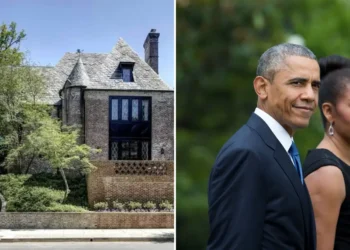It’s tempting to argue that the Strategic Defense Agreement (SDA) signed by the U.S. and Saudi Arabia during Crown Prince Mohamed bin Salman (MBS)’s visit to Washington fell short of expectations by excluding an explicit security guarantee for the kingdom. After all, Qatar received such guarantees just two months ago in an executive order issued by President Donald Trump. How come Saudi Arabia, whom Trump said is as great an ally as Israel, didn’t get a similar deal?
[time-brightcove not-tgx=”true”]
This is the wrong question to ask, and the wrong argument to make.
On paper, it’s true that the language in the Qatar executive order is stronger than the SDA (and candidly, stronger than in any other U.S. security arrangement with Middle Eastern partners minus Turkey, a NATO ally). But there is no real difference between the two.
I would even go as far as to say that had Trump and MBS signed a Senate-ratified formal defense pact that would legally obligate the U.S. to defend Saudi Arabia in the event of an external attack against it (à la NATO’s Article 5), there would still be no real difference.
That’s because both defense arrangements are much less significant if they don’t specify how the parties intend to upgrade their military ties. And in the case of the SDA, it’s vastly unclear how the U.S. and Saudi Arabia will translate their new defense vision into reality.
I don’t want to completely dismiss the SDA (or the Qatar executive order). It creates a new opportunity for U.S. and Saudi officials to upgrade their 80-year-old security partnership. But it’s now up to the national security bureaucracies and the militaries of both nations to develop the norms, habits, rules, laws, mechanisms, processes, and institutions for improved security cooperation and coordination—essentially the nuts and bolts of an enhanced defense relationship.
Notice how the SDA emphasizes the transactional sale of advanced U.S. military kit, including Abrams tanks and the highly-coveted fifth-generation F-35 jets, but barely mentions anything strategic in nature. This is typical of U.S. security policy toward Arab partners, where the focus is on equipment and less on joint security planning and coordination. It should be obvious by now that this hardware-centric approach has not produced Arab partners who are willing and able to contribute to collective security interests.
And this isn’t limited to Saudi Arabia and Qatar. Kuwait, Egypt, and Bahrain are designated by the U.S. as major Non-NATO allies (Trump just added Saudi Arabia to that club). The UAE is even a Major Defense Partner of the U.S., a status only India enjoys in America’s global web of allies and partners. All these statues and privileges do is grant these countries access to better U.S. weapons and possibly expedite the sale of those weapons.
It’s a shame because the U.S. and its Arab partners are leaving so much on the table. Other U.S. partners do not enjoy these benefits or platinum-member statuses and yet have managed to have much closer and better functioning defense ties with Washington. Look at Indonesia, Vietnam, Ukraine, and Taiwan: they invest in the details of their security partnership with Washington.
To be sure, both the U.S. and Saudi Arabia stand to gain from deeper defense ties. For Saudi Arabia, a more robust defense arrangement with the U.S. is crucial for its security. Without that security, MBS cannot successfully pursue economic transformation at home, his country’s top priority.
For the U.S., the more regional partners can do on their own or ideally together to secure the region and put out fires, the more it can focus on other security challenges around the world. Given its size, wealth, political influence, and religious authority in the Arab and Muslim worlds, Saudi Arabia can play a potentially leading role in Washington’s regional security calculus.
Moreover, of all the necessary nuts and bolts to a security partnership, institutions may be the most vital. NATO is the most powerful military alliance in history not just because of its combined combat power but also because of its institutional closeness and cohesion. America’s treaty alliances with South Korea and Japan are rock-solid in large part because of these institutional (political and military) linkages. Saudi Arabia does not have anything resembling what Japan and South Korea enjoy with the U.S.
Domestic politics, historically negative public opinion toward Saudi Arabia, and the kingdom’s limited capacity certainly play a role in limiting the depth of security ties. But there is still plenty of room to work around these constraints. After all, the kingdom already has a strategic dialogue and a strategic joint planning committee with the U.S., so there is no reason why each, and especially the latter, cannot be further developed at both the civilian and military levels.
Without foundational changes in U.S.-Saudi and U.S.-Gulf security relations that emphasize closer institutional and military linkages (and not just equipment), no bilateral defense agreement will be as effective. Those agreements should be viewed as a means to an end, and not the other way around, with the end being a more capable Saudi Arabia and stronger military ties.
The post What the U.S.-Saudi Defense Deal Leaves Out appeared first on TIME.




